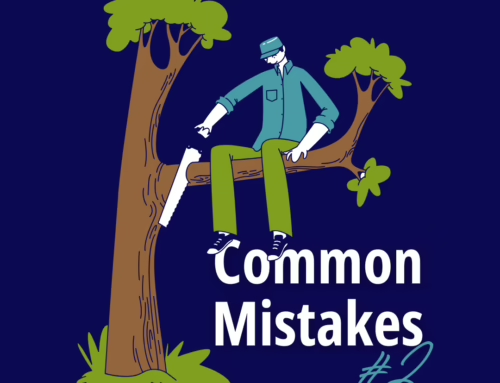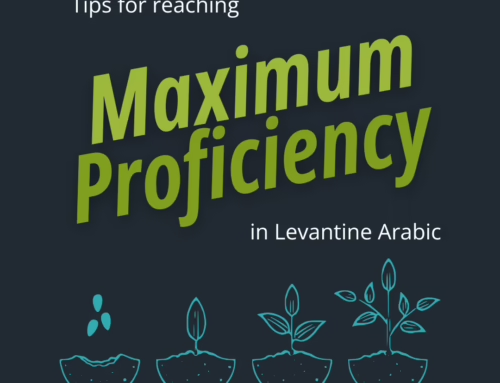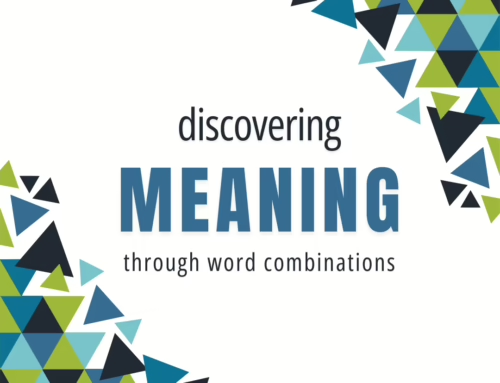In an aural based program that is focused on learning to understand the language, a rapid approach to acquisition gives the learner many strong advantages. The obvious one being quick vocabulary development. This may seem evident, but carries with it several sub advantages that go along with this strategy. For one, your mind begins to notice which patterns and words are used in high frequency. By pouring language you understand into your ears again and again, the commonly used verbs, expressions and grammar will highlight themselves naturally through repetition. They say, “repetition is the mother of all learning.” I’d add to that “frequent repetition with intensity.” The faster your are introducing yourself to language in new contexts, the more quickly you will begin to fill in meaning that isn’t always clear through just one encounter.
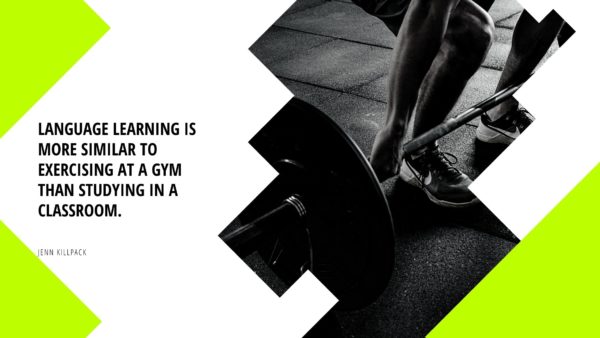 Language is often viewed as an academic pursuit, like any other subject at University. In reality, language learning is actually more similar to exercise at a gym than studying in a classroom. The more often you go in, for longer durations of time, building up your stamina and endurance, consistently working the same muscles, the better the result. Your ears and tongue are like muscles that need to be worked to make the information being heard and the sentences you are attempting to form become easier and easier.
Language is often viewed as an academic pursuit, like any other subject at University. In reality, language learning is actually more similar to exercise at a gym than studying in a classroom. The more often you go in, for longer durations of time, building up your stamina and endurance, consistently working the same muscles, the better the result. Your ears and tongue are like muscles that need to be worked to make the information being heard and the sentences you are attempting to form become easier and easier.
Fluency is speaking without hesitancy. What factors go into an ability to speak without hesitancy? Confidence is first and foremost. How do we gain this confidence? By being sure that what we are saying is right. When we understand what Arabs are saying and hear it again and again, and we practice speaking daily with honest correction, we gain the tools needed to know for certain that what we want to say is clear and accurate. This confidence allows us to speak more readily and begins a cycle of being willing to fail in order to discover the best way to say something next time. Habits are formed. Muscle memory is developed.
Many people ask me how many hours they should commit to learning spoken Arabic while in Amman, Jordan. Without exception, I always respond, “As many as possible.”
How Do I Become Fluent in Arabic?
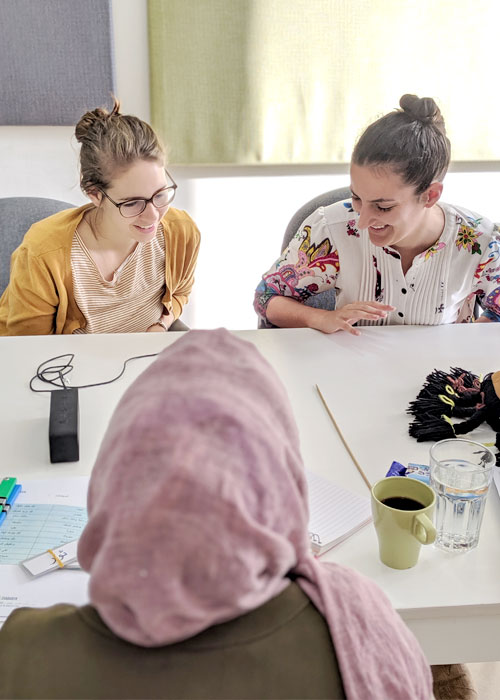 Back to the gym analogy. Maybe people think that going slower is better. When you approach language learning like an academic study it is as though you are preparing for some non-existent test. Some learners want to just take language sessions a couple of times a week or for an intense month and then stop to "catch up and study." Imagine someone going to the gym had the same approach. "I've worked really hard everyday at the gym for the last month. I'm going to stay home now and study the science of exercise." What would happen to their muscles while they took a couple weeks off? In language learning, the best avenue is forward, as fast as possible. Few of us realize how long it takes to build a recognition machine of 10,000 vocabulary words. Even after hundreds of hours of study, we have a long ways to go to get to that place. The faster we move, the more quickly our brain can discern what is essential for communication and put the puzzle pieces together to begin seeing how sentence structures work.
Back to the gym analogy. Maybe people think that going slower is better. When you approach language learning like an academic study it is as though you are preparing for some non-existent test. Some learners want to just take language sessions a couple of times a week or for an intense month and then stop to "catch up and study." Imagine someone going to the gym had the same approach. "I've worked really hard everyday at the gym for the last month. I'm going to stay home now and study the science of exercise." What would happen to their muscles while they took a couple weeks off? In language learning, the best avenue is forward, as fast as possible. Few of us realize how long it takes to build a recognition machine of 10,000 vocabulary words. Even after hundreds of hours of study, we have a long ways to go to get to that place. The faster we move, the more quickly our brain can discern what is essential for communication and put the puzzle pieces together to begin seeing how sentence structures work.
Staying Motivated While Learning Arabic
Most people assume that learning a difficult language such as Arabic will take a couple of years. Many don't, however, realize that at some point motivation will begin to taper off. If you've put in 80-100 hours per month in the beginning, by the time you've begun to tire out, you are already at a place where you can have significant conversations in Arabic. This alone will be a key motivator for many more months to come. However, if you've learned Arabic at a much slower pace, chances are you are still going to feel like you've been studying a long time and begin to feel exhausted. If you are still speaking at a very elementary level after studying for an entire year, this will be quite demotivating. To give yourself the best chance at success, go hard, trust the process and surround yourself with others who are doing the same. After all, learning Arabic is one of the most challenging endeavors you will undertake. If you are losing momentum, get a trainer (language coach) to motivate you, check your form, and encourage you to push through the pain. At my gym there is a sign that reads, "Work hard today or be sorry tomorrow."

